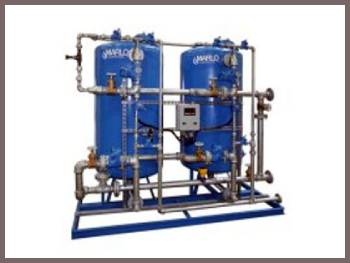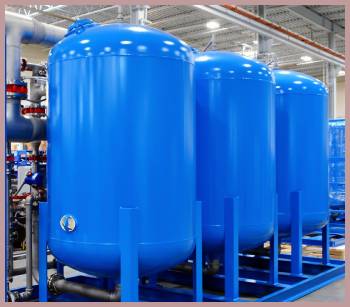When it comes to hard water, the struggle is all too real. The impact it has on your home, appliances, and even your skin can’t be ignored. That’s why many homeowners are looking for the best solution to soften their water supply, and Marlo Water Softeners are becoming increasingly popular. But, are they worth the hype?
In this article, we’ll dive into Marlo Water Softener reviews to analyze their pros and cons, and answer some frequently asked questions.
The Pros: What Makes Marlo Water Softeners Stand Out

- Top-notch Performance and Efficiency
Marlo Water Softeners boast a reputation for delivering outstanding performance. Their advanced technology ensures efficient ion exchange processes, which effectively remove hard minerals like calcium and magnesium from your water. Users have reported significant improvements in water quality, leading to better tasting and feeling water.
- Customizable and Versatile Options
Marlo offers a variety of water softener models, tailored to meet the needs of different households and water conditions. From compact systems for small homes to large commercial-grade units, there’s a Marlo Water Softener to fit your specific requirements.
- Easy-to-use Controls
Many users appreciate the user-friendly design of Marlo Water Softeners. The controls are easy to understand and operate, allowing for hassle-free adjustments to suit your needs. Additionally, the system’s digital display provides clear information about your water usage, regeneration cycles, and system status.
- Durability and Reliability
Marlo Water Softeners are built to last. The company utilizes corrosion-resistant materials and robust construction to ensure their products stand up to years of use. Many customers have reported their Marlo Water Softeners remaining in excellent condition even after a decade of use.
Read More: Clack Water Softener And Culligan
The Cons: Drawbacks of Marlo Water Softeners

- Initial Cost
One downside of Marlo Water Softeners is the initial investment. While they’re not the most expensive water softeners on the market, they do come with a higher price tag than some competitors. However, given their durability, efficiency, and long-term benefits, many users feel that the cost is justified.
- Limited Availability
Marlo Water Softeners can be challenging to find for some customers, as they’re not readily available at all major retailers. This can make it difficult for those who want to see and evaluate the product in person before making a purchase.
- Salt-based System
Marlo Water Softeners use salt to facilitate the ion exchange process, which may not be ideal for all households. Some people prefer salt-free alternatives due to concerns about sodium consumption or environmental impact. However, it’s essential to remember that salt-based systems like Marlo’s are generally more effective at removing hard minerals.
Read More: Evolve Water Softener
Frequently Asked Questions (FAQs)
The life expectancy of a water softener can vary depending on the make, model, and maintenance practices. However, most water softeners have a lifespan of 10 to 15 years. Marlo Water Softeners are known for their durability and can last well beyond this range when properly maintained.
Marlo Water Softeners are designed to work with sodium chloride (NaCl) or potassium chloride (KCl) salt pellets. Make sure to use high-quality, water softener-grade salt pellets to ensure optimal performance and prevent any potential issues.
A Marlo water softener uses an ion exchange process to remove hard minerals like calcium and magnesium from your water. As water flows through the resin bed in the softener, these minerals are exchanged with sodium or potassium ions, effectively softening the water.
Saltless water softeners, also known as water conditioners, can help to reduce the effects of hard water. However, they work differently than traditional salt-based water softeners. Instead of removing hard minerals through ion exchange, saltless systems typically use methods like template-assisted crystallization (TAC) or electromagnetic waves to alter the structure of the minerals, preventing them from forming scale deposits. While saltless water softeners can be effective in reducing scale buildup, they may not be as efficient as salt-based systems in addressing all hard water issues.
There are a few potential downsides to using a water softener, including:
Initial Cost: High-quality water softeners can be expensive to purchase and install.
Maintenance: Water softeners require regular maintenance, including adding salt and cleaning the brine tank.
Salt Usage: Salt-based water softeners can contribute to higher sodium levels in softened water, which may not be suitable for those on low-sodium diets or with certain health conditions. Additionally, the salt discharge from these systems may have an environmental impact.
If your water softener is 20 years old, it might be time to consider a replacement. As water softeners age, their efficiency can decrease, and parts may wear out, leading to reduced performance. Upgrading to a newer model, like a Marlo Water Softener, can help improve water quality and increase the efficiency of your system.
In Conclusion
Marlo Water Softeners have gained a loyal following for their performance, efficiency, and durability. While the initial cost and salt-based system may deter some potential buyers, the pros of these water softeners often outweigh the cons. By analyzing Marlo Water Softener reviews and taking note of the pros and cons discussed in this article, you’ll be better equipped to decide if a Marlo Water Softener is the right choice for your home.



